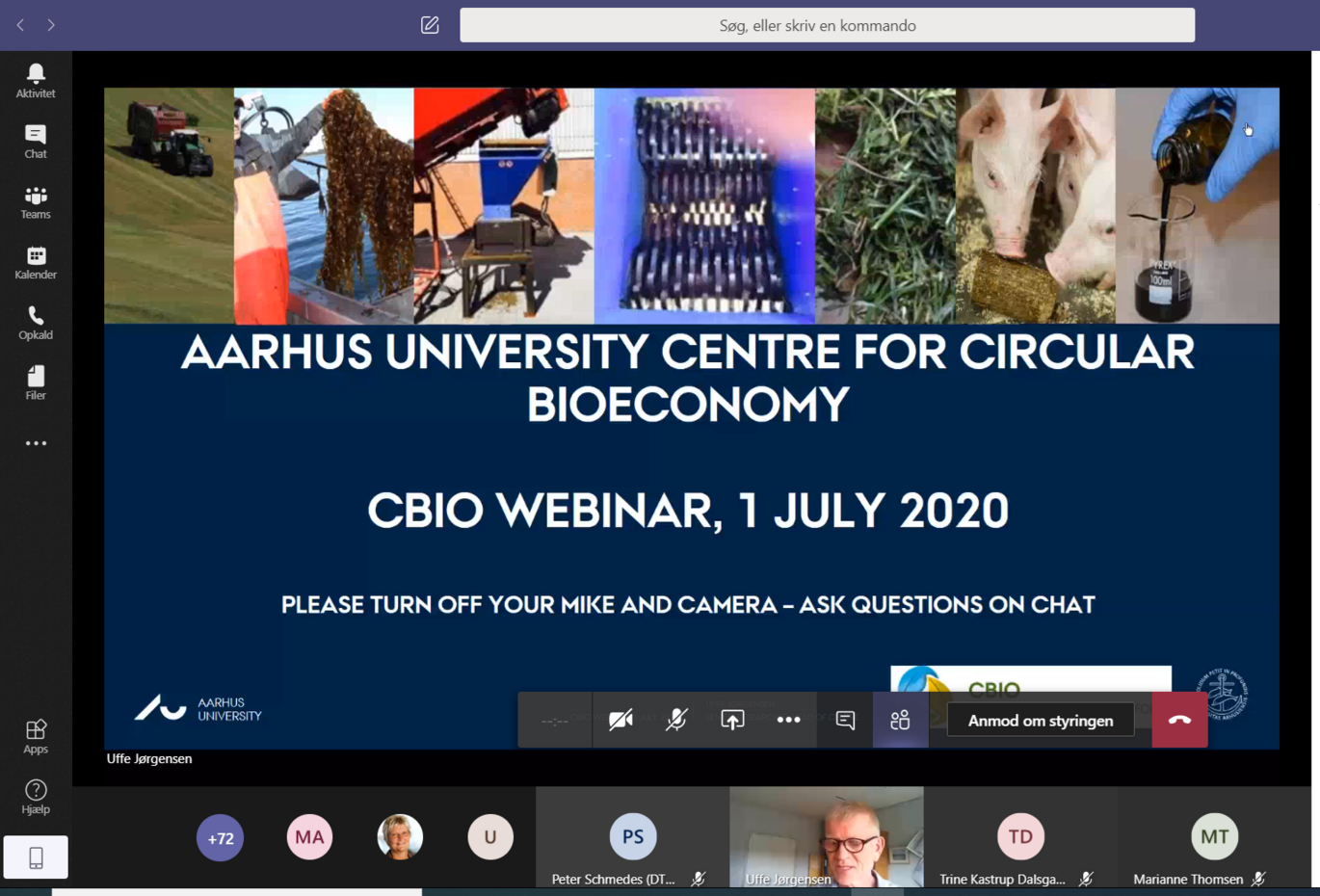CBIO researchers present solutions for the green transition
The circular bioeconomy can provide green solutions to everything from animal feed to textiles. At a webinar on 1 July, several researchers from CBIO - Centre for Circular Bioeconomy at Aarhus University - presented their many research projects, which have the potential to solve some of the key challenges in the green transition.

Can we make textile out of grass? How is it possible to extract protein from seaweed? And can grass protein replace soybeans in the feed for pigs and poultry?
The answer to all of these and much more questions is yes. However, it takes research and many trials for it to become reality in agriculture, food production and other industries.
The interdisciplinary research centre CBIO - Centre for Circular Bioeconomy at Aarhus University has been established with this purpose. A substantial part of the research and the necessary research facilities are located at the university department in Foulum. This includes a demonstration plant for protein extraction from grass, inaugurated in the summer of 2019.
- At CBIO, we do cutting-edge research across the different research areas at the university. We have extensive test sites in both the sea and on land and unique research facilities, several of which are on a full pilot scale. This gives us good conditions in our work to find solutions that can contribute to the green transition, says senior researcher Uffe Jørgensen, who is the Head of CBIO:
- After three years of work, with broad participation from the industry and universities both in Denmark and in a large number of other countries, CBIO can present many interesting results.
Green projects with promising results
More than 100 attended the webinar, where the current research at CBIO was presented by PhD students and postdocs.
This included projects on how green protein can replace soy in the feed for pigs and poultry - research that has great potential in creating a more sustainable agriculture
Lene Stødkilde-Jørgensen, Assistant Professor at the Department of Animal Science, Aarhus University, was behind one of these presentations, which included results from the GUDP project SuperGrassPork:
- During a feeding experiment with organic pigs, which were fed compound feed with protein extracted from grass-clover, we have concluded that the pigs are doing fine with up to 15 percent grass protein in their feed rations. We also found a positive effect on the meat percentage and the omega 3 fatty acid content of the meat - with no difference in texture or taste.
A moon landing approach to research
Claus Felby, Senior Vice President for biotech research at the Novo Nordisk Foundation, concluded the webinar with a proposal for how a major reduction in CO2 emissions can be achieved:
- We need a new approach to research, with an emphasis on collaboration across research disciplines and sectors. At present, the research activities take place in series, so that basic research is followed by research and development, followed by demonstration - and later by market introduction and then market-driven innovation and growth. In the future, these activities should take place in parallel. So, we need a moon landing approach, where all stakeholders work together on a common mission.
Claus Felby also emphasized that the green transition requires massive investments in research, but also that we need to use the technology that we already have to a much greater extent. He also emphasized the great business opportunities associated with the green transition.
| About CBIO - Centre for Circular Bioeconomy, Aarhus University CBIO activities are divided into seven main areas, covering the entire production chain ranging from cultivating and procuring biomasses, logistics, management, refining, product development and tests, recirculation, impact on nature and environment as well as research in relation to society and economy. A close collaboration with both Danish and international companies and organizations in the bio-based economy is a key element in CBIO. This supports innovation and entrepreneurship in agriculture, the food industry, the pharmaceutical industry, the plastics industry and other sectors with an interest in the new bioeconomic potential. Read more on the CBIO website here |
|---|
Contact
Uffe Jørgensen, Head of CBIO - uffe.jorgensen@agro.au.dk - phone +45 2133 7831
Claus Felby, Senior Vice President, Biotech, Novo Nordisk Foundation - CFE@novo.dk - phone +45 3527 6523
Lene Stødkilde-Jørgensen, Assistant Professor, Department of Animal Science - lsj@anis.au.dk – phone +45 8715 4284
More information
